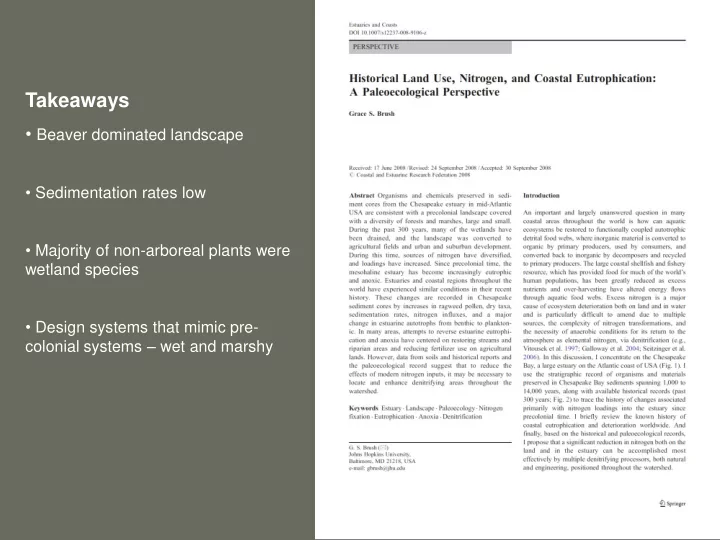

Takeaways • Beaver dominated landscape • Sedimentation rates low • Majority of non-arboreal plants were wetland species • Design systems that mimic pre- colonial systems – wet and marshy
Takeaways • Increase carbon availability in the flow path • Slow water velocity – increase contact time • Increase topographic complexity – maximize surface area to volume • Increase connection between stream and adjacent floodplain • Enhance hyporheic exchange
Takeaways • Mill dams ubiquitous throughout the region • Heavy sedimentation rates coincided with post settlement land use changes • Dam breaches lead to incision, bank erosion and increased suspended sediment
Takeaways • Contemporary upland sediment is a significant contribution to overall sediment supply • Supports sediment storage along the flow path • Difficult to demonstrate that any particular investment will achieve the desired result
Takeaways • Sediment fingerprinting approach used to quantify sources during storm flows • Agriculture was the major source of sediment (53%) for the 10 storm samples • Streambank sediments contributed 30 % of sediment sampled during storm flows
So, The Question Is: Where Is This Sediment Coming From and How Do We Target Our Efforts? And The Answer Is… It Depends. But there are answers
0 and 1 st Order Streams Stormwater Management Agricultural BMPs
Stream Restoration Competent Vs. Depositional Channels
Dampen the Hydrograph - Reduction in Stream Power - Opportunity for Processing
Recommend
More recommend